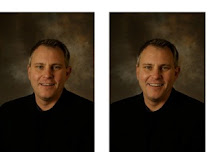Based on the agreed charge we received at Techny, our sub-committee hereby submits its thoughts (distracted as they may be at present during the fourth of July week) on Methodist mission education best practices, i.e. core competencies. Our thoughts draw upon the long back-story of our group's conversation with GBGM and GBHEM on the future of mission education, which culminated in the Task Force report we received from those agencies at Techny, IL, on June 19, 2008.
We commit together to forward a document for review in Atlanta, August 14-17 at the UMC at 40 Conference to the larger group of United Methodist Professors of Mission. Although we all come to this task from our personal and instutional locations, let's give ourselves permission to think freely and openly together, about how our teaching would form leaders at the intersection of Methodist and missiological teaching in the past, our own growing wisdom in the present, and the future challenges to our church and the needs of the world. We already have a long received and hard won wisdom, so let's let it shine folks!
With that grand opening statement, I formally submit an opening group of statements from our sub-committee's thoughts on the subject during this holiday season:
-----Original Message-----From: Phil Wingeier <Phil.Wingeier@pfeiffer.edu>To: Michael_Rynkiewich@asburyseminary.edu; bhartley@eastern.edu; wdaniel@emory.edu; pwchilcote@aol.comSent: Thu, 26 Jun 2008 10:32 pm
Subject: UM @ 40 missions sub-committee Bill, Paul, Mike and Ben,
If I read Dana's minutes correctly, the five of us agreed to work on mission course objectives to be ready for the UM @ 40 conference. I thought the task force gave us a good head start, and I'd like to ask what changes you would make? I think Paul made a good distinction between course objectives and competencies. What else would you change? Phil
------------
On Fri, 27 Jun 2008 15:19:06 -0400 pwchilcote@cs.com wrote:
[Hide Quoted Text]
Friends,I am in Florida at the moment - someone has to do it!As soon as we are settled in Ashland, I was going to turn to this.? In the interim, here is what I would suggest in terms of what would be helpful:1) Course objectives (these are essentially what the document describes as core competencies)2) Learning outcomes (or what I would call competencies - introduced by a statement such as: At the conclusion of this course, students will be able to. . . )3) Suggested bibliography (very basic; core texts)4) Perhaps, very minimal content outline. I don't think this is rocket science and should not take a whole lot of effort to construct; but I do think this could be extremely helpful as a model as well for other UM courses. Paul
--------------
Benjamin Hartley
To:
pwchilcote@cs.com, Phil.Wingeier@pfeiffer.edu, Michael_Rynkiewich@asburyseminary.edu, bhartley@eastern.edu, wdaniel@emory.edu
Subject:
Re: UM @ 40 missions sub-committee
Headers:
Show All Headers
Hello all,Thanks for getting this going, Phil. I think we have been charged specifically with developing "core competencies" and should focus most of our attention in getting these well-formulated. The key texts may be more difficult to agree upon and I think should be a secondary for our consideration.I agree with what Paul has said in terms of these competencies being essentially "learning outcomes." They are things we should be able to measure in terms of students' ability.I will try to get to this and propose a few by early next week. Ben
--------------------------------
Date:
Fri, 27 Jun 2008 21:55:34 -0400 [06/27/08 09:55:34 PM edt]
From:
wdaniel@emory.edu
To:
Benjamin Hartley
Cc:
pwchilcote@cs.com, Phil.Wingeier@pfeiffer.edu, Michael_Rynkiewich@asburyseminary.edu
Subject:
Re: UM @ 40 missions sub-committee
Headers:
Show All Headers
Hello Ben, Phil, Paul, Mike,
In reflecting on our task, within the larger shifts of UMC polity and mission, I had a thought I want to put to the group. In light of the new rubric proposed by the Connectional Table to guide the budgeting and prioritizing of the General Agencies (including GBGM), would there be some merit in structuring our working discussion of core competencies around the four focus areas of ministry? 1. Leadership formation 2. Congregational development 3. ministry with the poor 4. health issues. These four areas will be the guiding principles for visioning Methodist ministry globally for some time, and relating our discipline's best teaching practices to these institutional (missional?) communities seems both prudent and practical. (The Anglicans have published a book, edited by Andrew Walls, on the Mission of the church in the 21st century, using the organizing principle of the "Five marks of mission".)If our church has adopted these four ministry emphases, perhaps we could articulate a vision of mission education for lay and clergy leadership that relates or translates the wisdom we already teach in these areas, into language agencies and conferences are really trying to live into.
A minimalist approach would be to simply find ways to organize competencies in these four areas as a heuristic device. Maximally, we could try to articulate a rationale for our competencies, our learned outcomes, "what we would like our students to be able to do at the end of the course" in ways that take these four areas seriously.
Here is a link to the connectional table with rationale:http://www.umc.org/site/c.lwL4KnN1LtH/b.3896915/k.E1AB/Our_Work.htm
I think we all probably teach mission courses with these emphases in our curriculum, but perhaps we could place our discipline on stronger institutional grounds by showing how Methodist mission education supports the larger goals of our denomination at the national and international level.I know we all have many other things on our plates these days, but I appreciate the chance to work with you all on this draft. I hope we can sharpen our thinking and strengthen our discipline in the process.
best wishes,
Bill Daniel
W.Harrison Daniel, Ph.D.
Assistant Professor in the Practice of History and Mission
Candler School of Theology
Emory UniversityAtlanta, GA 30322
wdaniel@emory.edu
404 441-2998

No comments:
Post a Comment